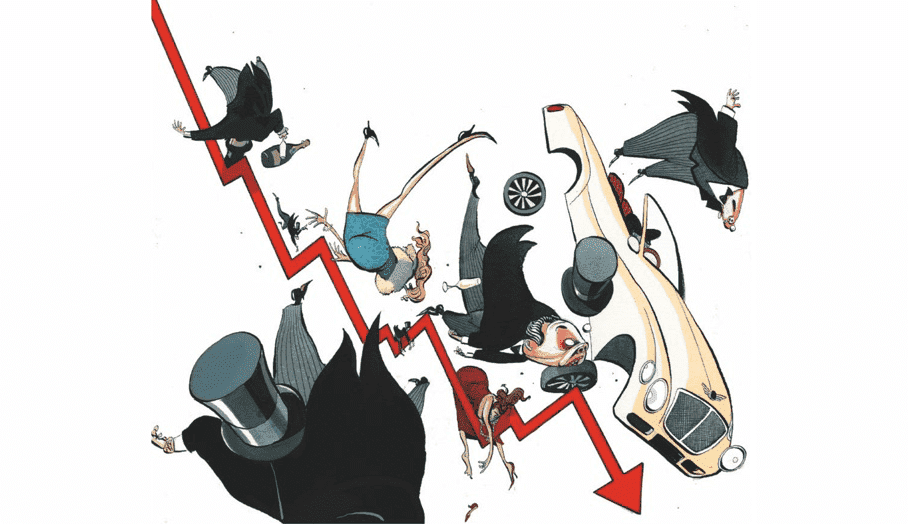House prices have fallen for the second month in a row, according to Nationwide – following wider predictions of a 9 per cent fall in the market. Nationwide’s house price index fell 1.4 per cent last month after falling 0.9 per cent the month before. That’s still up 4.4 per cent year-on-year but (pandemic excluded) it’s the first significant drop in property prices since the 2008 crash. Earlier this week, data from Zoopla suggested a 44 per cent drop in demand. The Bank of England, too, said mortgage approvals are at their lowest since June 2020.
Nationwide now puts the average house price at £263,788, nearly £4,500 less than in October. This is, it says, a basic function of the rising cost of borrowing (a worldwide trend, briefly exacerbated in the UK by the Truss debacle). But at one point back then, the markets feared Bank of England base rates would hit 6.5 per cent: now they’re expected to peak at just under 4.7 per cent next summer. House buyers will see a slightly higher peak of 5 per cent around a year later according to the OBR.
The Nationwide index is one of many house price metrics. One forecaster, Capital Economics, expects house prices to fall 12 per cent before 2024. The OBR goes for a smaller figure, saying house prices will 'fall by 9 per cent between the fourth quarter of 2022 and the third quarter of 2024’, blaming rising rates and a recession believed to have started already.
So is this good news for first-time buyers? Not for long, according to the OBR. When the economy starts to recover (expected to be from 2025), house prices are due to rise faster than incomes. The cost of buying a home will settle at around seven times higher than average earnings. Affordability is, of course, a mixture of prices and interest rates – and in recent years, high prices have been offset by low rates.
Mortgage lenders also said that persistently high inflation was eating into the purchasing power of potential buyers. Inflation may have peaked but economists don't expect it to return to the Bank’s 2 per cent target until the middle of 2024. Against this we need to set the supply and demand for UK housing. The picture is still settling, but with first-time mortgages already well over 5 per cent (vs under 2 per cent a few months ago) the decline in prices is unlikely to offset the increased cost of borrowing for those who still feel locked out of the market.







Comments